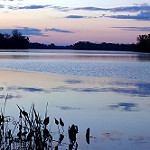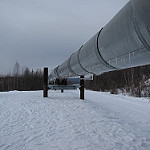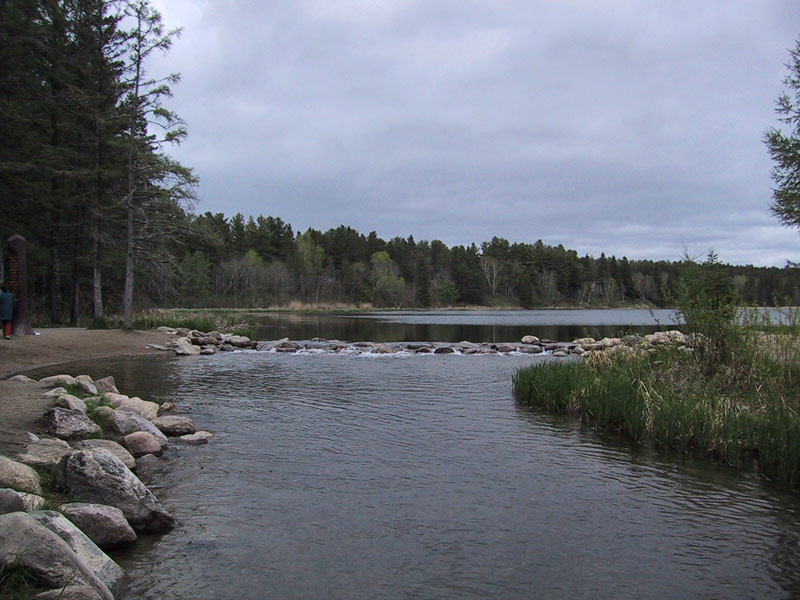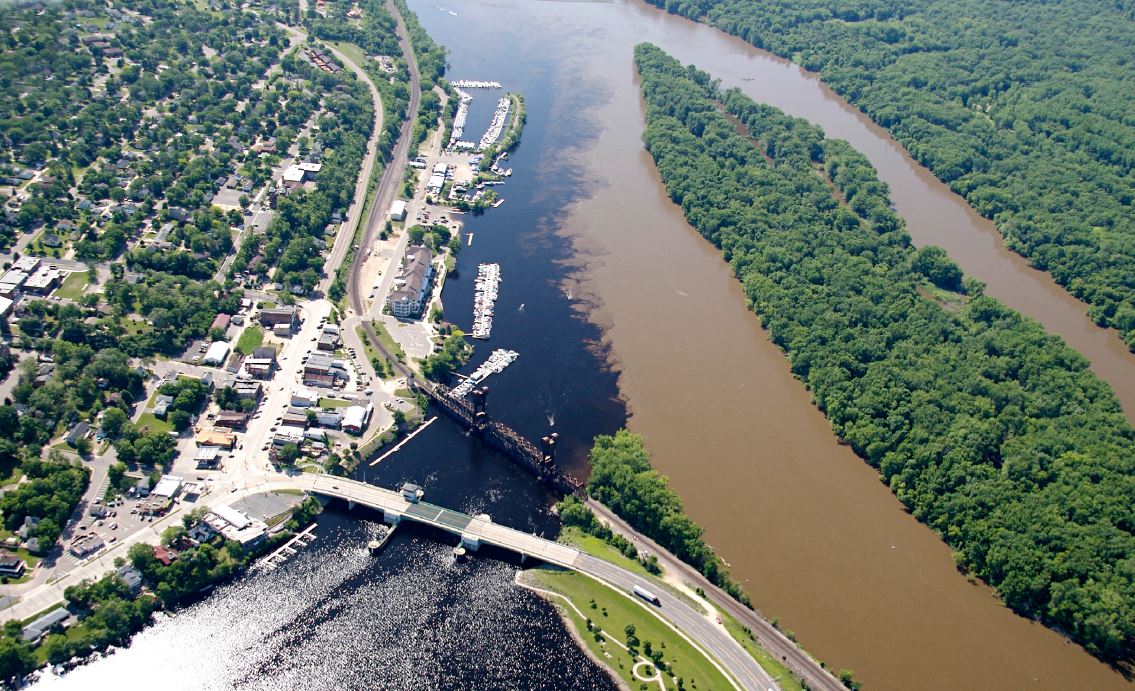|

Governor Candidates Forum on the Environment January 24
With so much at stake for Minnesota’s land, air, and water in today’s political climate, our next Governor will play a crucial role in determining the future of our natural resources and the health of our communities. That’s why Minnesota Environmental Partnership and our friends and partners in the community are proud to be co-hosting the Our New Environment Forum, where our state’s gubernatorial candidates will have the chance to share their views and plans on these critical issues. And we call on all interested citizens to watch and participate!
The forum has already drawn an impressive crowd – so much so that the live stage event at Hamline University is already full! But that doesn’t mean that Minnesotans can’t watch with friends and neighbors. Members of our coalition will be hosting satellite viewing parties where the event will be shown live with no cost of admission! Some satellite locations have limited space, so registration is needed. And for those who prefer to watch from the comfort of their home, the forum will also be streamed online – see the event page for details.
The Our New Environment Forum is for, by, and of the community, so we encourage Minnesotans to participate and interact. Registered participants will be able to pose and vote on questions using Pigeonhole – details to follow. We also encourage participants to engage on social media using the hashtag #ONEGovForum.
If you’re concerned about clean drinking water, renewable energy jobs, community health, sustainable agriculture, and more, please join us in asking candidates what they plan to do about these critical issues. The next few years will be critical for the land we live in, and our next Governor should fully understand how much Minnesotans value our vital resources.
Register here!

|

photo credit: Pioneer Press |
PolyMet mine, inexorably moving toward approval, will doom more than water
(From Star Tribune) — Despite all the excellent coverage of the PolyMet/NorthMet mine proposal, and despite lengthy comment periods with persistent opposition by environmentally conscious groups, Minnesota is about to move forward with its first open-pit copper and nickel mine (“State outlines its PolyMet permit,” Jan. 6). Not just a little mine to test the waters, mind you, but a mine with a proposed 30 square miles of coverage. As a biologist and scientist — and as a Minnesota citizen — I am heartbroken. Yes, an emotional response, but it is grounded in tremendous concern for future generations. We really aren’t paying enough attention to the irreplaceable losses with these sorts of decisions. >>Read More.
|
 |
Twin Metals decision part of a much broader initiative
(From The Timberjay) — Now we know why the Trump administration has been so intent on reshaping America’s courts. For more than a century, governmental decisions have for the most part been made based on facts and law. Sure, politics intercedes at times, and no one would deny that the decision-making gears of the federal bureaucracy grind slowly. But the executive branch of government makes thousands of decisions every month, from administrative to regulatory, most of which the public never hears about, and despite the oftentimes rancid rhetoric of critics, most are sound and based on facts, the law, and a sincere desire to advance the public interest. And that’s a problem for an administration that acknowledges its desire to “blow up” the administrative state and effectively reverse decades of well-established rules, regulations, and protections that previous administrations, of both parties, have put in place. >>Read More.
|
 |
 |
Judge rejects PCA’s proposed sulfate limit for wild rice waters
(From Duluth News Tribune) — A state administrative law judge has flatly rejected a plan by the Minnesota Pollution Control Agency to abandon the statewide 10 parts-per-million limit for sulfate pollution in wild rice waters in exchange for a lake-by-lake system with varying limits. Administrative Law Judge LauraSue Schlatter, in an 82-page opinion approved by the state’s chief administrative law judge and released Thursday, considered 1,500 written comments on the proposed changes in state law and held five public hearings that drew a combined 300 people. Schlatter ruled against repealing the existing, statewide 10 ppm limit due to the PCA’s “failure to establish the reasonableness of the repeal, and because the repeal conflicts” with the federal Clean Water Act. >>Read More.
|
 |
Shingle Creek’s cautionary tale for Minnesota’s water
(From MPR News) — Fifty Minnesota lakes and streams are now on the state’s impaired waters list because of too much chloride, mainly from road salt. Excess chloride has widespread implications — everything from affecting aquatic life reproduction to corroding our infrastructure to health problems for humans. As scientists test more Minnesota lakes and streams, they expect to find more with salty problems. Shingle Creek was the first body of water added to the impaired list for too high a chloride concentration. But even 20 years of efforts to curb salt use around the creek haven’t made much of a dent in the amount of chloride in the watershed, illustrating the long-lasting damage salt can leave behind. >>Read More.
|
 |
Why construction of the Line 3 pipeline in northern Minnesota could happen as soon as this summer
(From MinnPost) — After meetings packed with protesters and more than a year of procedural delays, the decision to green light Enbridge’s Line 3 replacement pipeline could come as early as this summer. Earlier this week, the Minnesota Public Utilities Commission (PUC) voted unanimously to set an April briefing deadline, provided the state’s Environmental Impact Statement (EIS) for the project is deemed adequate; the agency narrowly rejected the EIS back in December and asked for four things to be fixed before moving forward. That’s anticipated to happen next month. That means Enbridge could finally be looking at discussions over whether to permit the 1,031-mile U.S.-Canada oil pipeline route as early as May or June. >>Read More.
|

|
 |
Will millennials step up as hunting and angling continue decline?
(From Star Tribune) — Most parents of children born between 1946 and 1964 – baby boomers – didn’t worry about whether their kids would hunt or fish. Of course they would. Or, at least, many would. These outdoor traditions dated to the nation’s founding, and had long been embedded in Americans’ aggregate recreational lifestyle. Yet whether hunting and fishing can catch on in significant numbers with more recent generations of Americans is an open question, particularly with the cohort known as millennials, who are now age 19 to 35, give or take. The issue is important for a number of reasons. >>Read More.
|

|
 |
Report aims to help small towns mitigate climate change damage
(From Mankato Free Press) — A regional group that has been studying ways communities can better prepare for more turbulent weather amid climate change has a new name but the same focus. The Region Nine Renewable Energy Task Force is now the Southcentral Minnesota Clean Energy Council. Pam Rodewald, who is a Region Nine commissioner, a Courtland City Council member and a Minnesota Pollution Control Agency engineer, said a report developed by Region Nine is aimed at helping small communities take mitigation steps to help them prepare for crises such as worse flooding, more severe droughts, increased wildfires or increased pathogens. >>Read More.
|
Weekly Environmental Trivia – Answers Below Job Postings!
|
 |
1. What state park in Cook County contains Minnesota’s highest waterfall?
2. Approximately what fraction of Minnesota’s land is forest?
3. Bradbury Brook, the earliest dated (7500 BC) archaeological site in Minnesota, is located near what major lake?
|
|
|